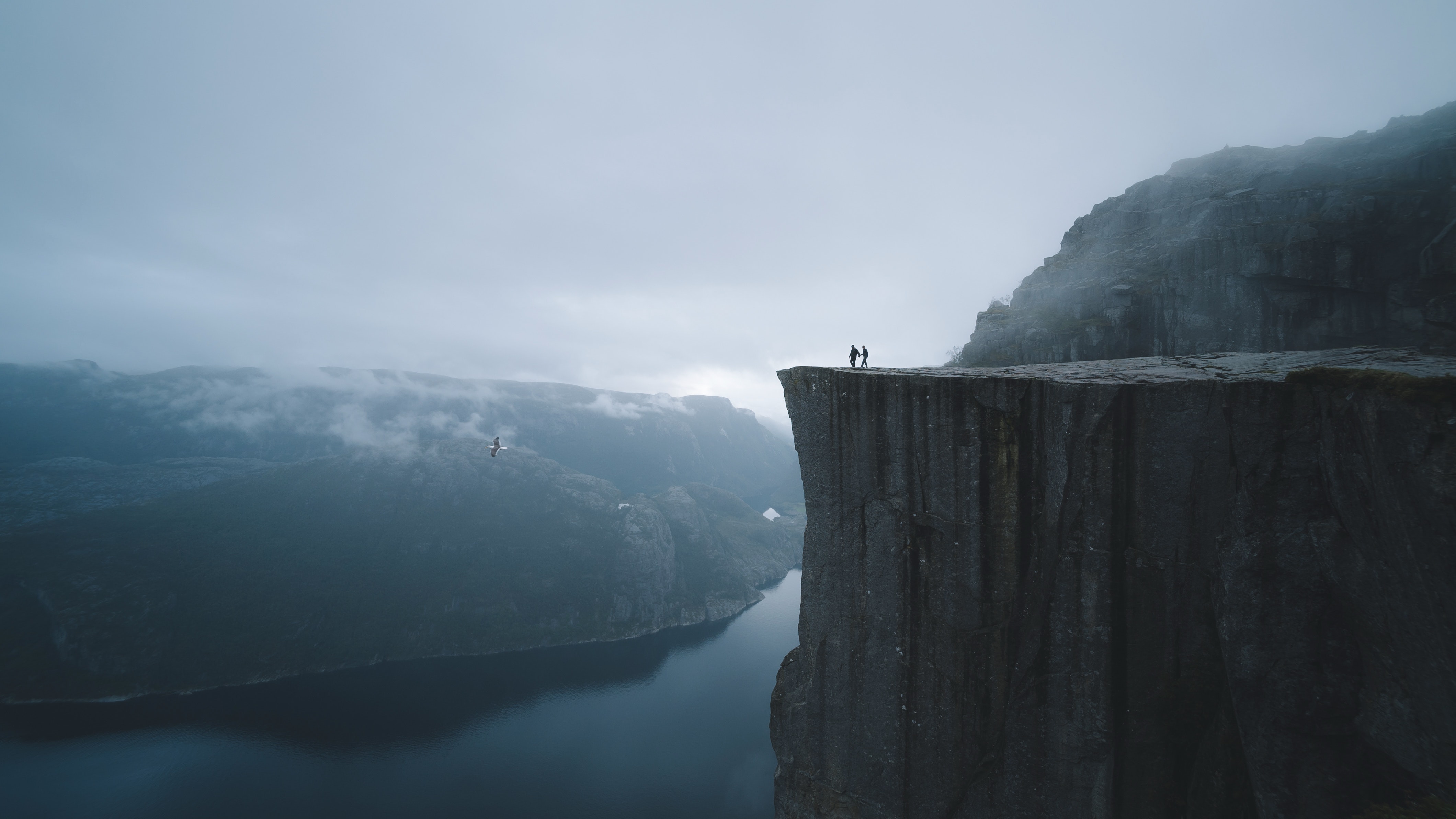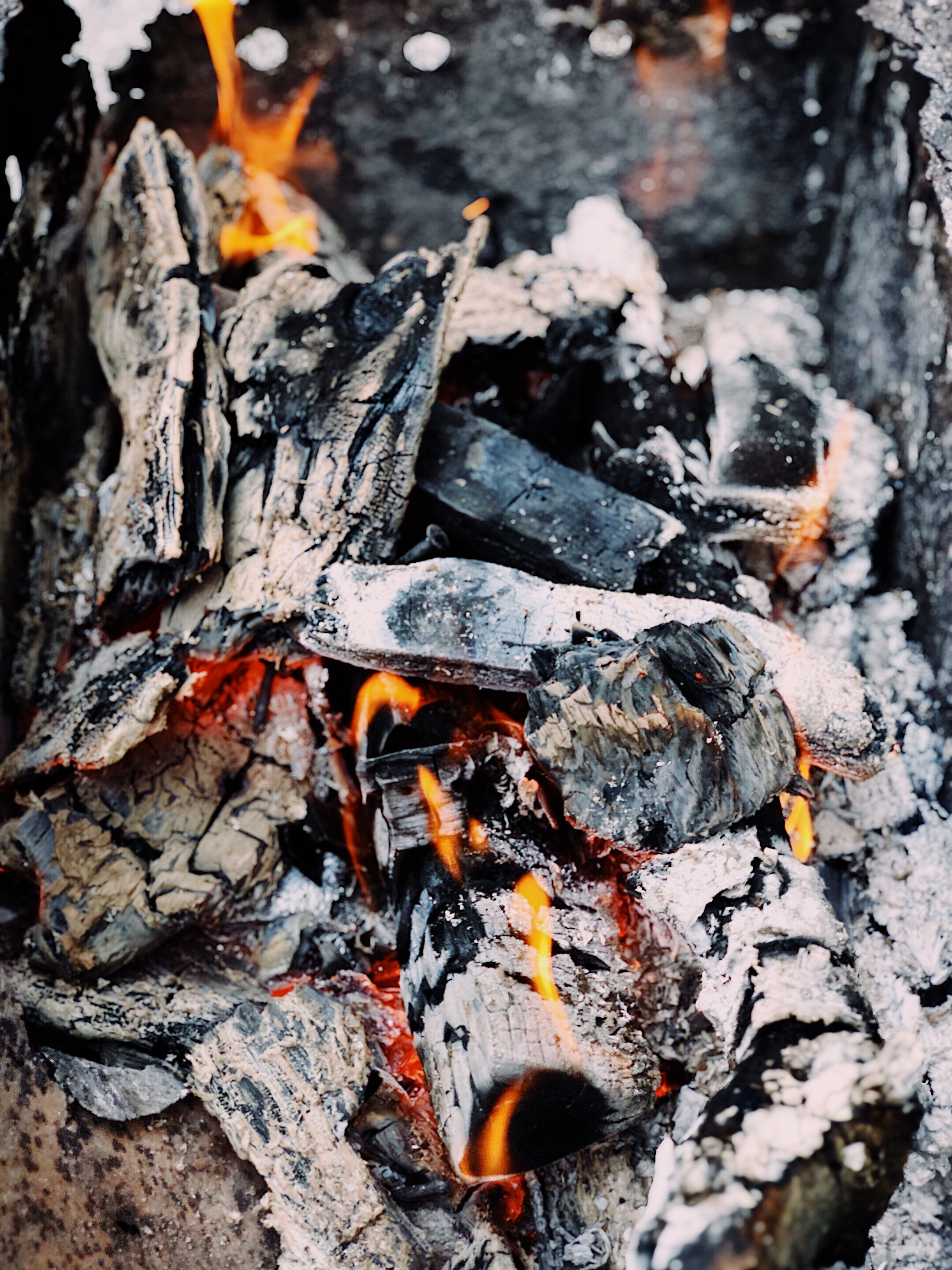Faith in a Time of Climate Peril

Within a song or hymn, one can often find insights into how to cope with setbacks and hardships. The old African-American spiritual “Keep Your Lamps Trimmed and Burning” presents a dim reality: a “darker midnight lies before us, for the time is drawing nigh.” Yet, in the next verse, comes relief: “the morning soon is breaking.” All the while, all are enjoined to “Keep your lamps trimmed and burning.” In these lyrics, there may be a key to sustaining our faith during the present midnight of climate peril.
Christian faith communities have kept the light of creation justice trimmed and burning for decades. We have been a vital part of the chorus of voices calling for action at every level. As people of faith, we have drawn attention to how many facets of our lives are inextricably bound to the wellbeing of God’s creation. We have highlighted how our ability to love God and our neighbors is connected to our care for creation. Whether in defending biodiversity, in safeguarding clean water, or in supporting a healthy climate, Christian communities have been present and active in tending to the common home of God’s creation.
Yet, in 2017, we have been forced to the midnight hour as the window of opportunity to address the present climate crisis shortens. The Trump administration has filed notice with the United Nations that the United States federal government will withdraw from the Paris International Climate Agreement, a historic accord of 195 nations to reduce greenhouse gases and address the harms caused by damage to our climate. At precisely the moment when the nations of the world should be accelerating progress on climate protection, the U.S. federal government has thrown itself into reverse.

While exiting the Paris agreement is one of the more publicized threats to our shared future environmentally and otherwise, there have been many other drastic and worrisome changes in environmental policy:
- The Department of Interior is pursuing an agenda to shrink national monuments and other sensitive conservation areas.
- There are new government efforts to subsidize fossil fuel energy and open up dangerous offshore drilling.
- Congress is exploring how to make endangered species decisions based more on politics than on science.
- The budget and agenda of the Environmental Protection Agency is being shrunk dramatically as basic protections for clean air and water are reduced.
These developments come even as government agencies release continually increasing evidence that human activities are contributing to alarming changes in world climate and weather patterns. A recent report by the National Oceanic and Atmospheric Association[1] confirms that, in 2016, these changes included record-high levels of greenhouse gases, global surface temperatures, sea surface temperatures, and sea level. The lowest ever arctic ice coverage was also recorded, as well as 11 more tropical storms than the annual average from 1981-2010.
The health and diversity of God’s creation is intimately connected to the wellbeing of humanity. Pollution is increasingly harming human health, while extreme weather and altered climates are forcing migration as those who are most economically vulnerable are the least able to cope with the degradation of God’s creation. To compound matters, all of this is happening as our social safety nets are being cut apart: healthcare, immigrant rights, and support for vulnerable populations are under attack.

Even in this time of trial, the hope of a coming morning remains. But this hope is not simply a feeling. It is an act of faith, and it is an act that comes with responsibility. We are called to keep our lamps trimmed and burning. We believe and act in hope, knowing that when we do our part, God can move among us to heal creation.
In the absence of leadership from the federal government, people of faith are making the choice to hope, even in the midnight hour. From denomination to denomination, we can see a movement building. For instance, we see it in the United Church of Christ, a denomination of 5,000 churches across the country. Earlier this summer at Immanuel United Church of Christ (UCC) in Catonsville, Maryland, a group of climate leaders within the denomination gathered to listen to the Rev. Tafue Lusama from the island nation of Tuvalu. Lusama shared with them a common assertion from his home country, “If we save Tuvalu, we save the world.” Lusama was referencing the dire predicament Tuvalu faces due to the rising sea levels caused by climate change. If the world can prevent Tuvalu from drowning, there is hope for everyone else.
The public narrative about climate change need not be limited by what truths politicians choose to ignore or acknowledge as truth. A day after the gathering at Immanuel UCC, the church’s pastor took action by planting a yard sign in front of her church that declared, “We [heart] Planet Earth. We support the Paris Accord.” The Rev. Beverly Lewis explained her action by declaring, “We want to stand with the rest of the world and commit ourselves to protect and defend the earth for the generations to come.” The same yard sign that Lewis planted is now being made available for faith communities across the country to download so that they can publicly declare their stance as well.
On July 3rd, only days after Lewis took action, almost a thousand delegates from every state in the Union gathered for her denomination’s biennial meeting in Baltimore. A highly anticipated item of business was an emergency resolution drafted in response to the Trump administration’s decision to pull out of the accord. The resolution opposed the pullout and declared that this was a moment “for which the church was born.” The resolution put particular focus on “the disproportionate impact of climate change on communities of color, indigenous communities, and poor white communities.” The resolution further instructed pastors to preach on climate change as their churches and members engaged in an array of grassroots activism to resist fossil fuel infrastructure and demand renewable energy. The resolution passed with 97 percent of the delegates voting in its favor.
The UCC is part of a larger tide that is growing. Less than a week later the Christian Church (Disciples of Christ), with its nearly 4,000 churches, passed a resolution moving the denomination toward Carbon Neutrality. This resolution passed unanimously after words spoken by youth and adult alike. One pastor explained eloquently why climate action is part of her faith and Midway Christian Church in Kentucky was featured in a creation care video. The Christian Church (Disciples of Christ) has a long-standing program to invite churches into action. The Green Chalice movement within the denomination is growing as churches across the country and in Canada are offering a legacy of love by caring for creation and neighbor. Congregations participating in the Green Chalice ministry create a green team, sign a covenant for care for God’s creation and commit to three actions.
To build a movement that can address the magnitude of the climate crisis during this midnight hour requires that denominations no longer act alone. Our lamps shine brighter when we stand side by side. Both the United Church of Christ and the Christian Church (Disciples of Christ) are active in the ecumenical work of Creation Justice Ministries. Creation Justice Ministries’ mission is to educate, equip, and mobilize Christian communities to protect, restore, and rightly share God’s creation. On a regular basis, Creation Justice Ministries brings diverse denominations together whether it is for online actions or marches in the street. Moreover, Creation Justice Ministries offers Christian educational resources that are released each year in advance of Earth Day Sunday. Creation Justice Ministries is based on Capitol Hill in Washington, DC and also facilitates advocacy opportunities for faith communities.
“Keep Your Lamps Trimmed and Burning” has a refrain. It calls out, “Children, don’t grow weary, for the time is drawing nigh.” With faith and with hope, let us not grow weary. Instead, let’s become storytellers of climate truths, building meaning and courage in our communities. Now is the time to continue our striving, and to fulfill the high calling to which God beckons us.
How is God calling you to act and to keep the lamp burning?
 Learn more about faith-based opportunities to protect, restore, and more rightly share God’s creation at www.creationjustice.org, and find links to the UCC, Disciples, and other denominational ministries at www.creationjustice.org/members-and-partners
Learn more about faith-based opportunities to protect, restore, and more rightly share God’s creation at www.creationjustice.org, and find links to the UCC, Disciples, and other denominational ministries at www.creationjustice.org/members-and-partners
Also, remember that “Keep your Lamps trimmed and burning” is a metaphor! Turning off unused lights is one way to limit climate change.
[1] Editorial Note: The NOAA report described in the linked article is the same report which was released to newspapers, allegedly out of fear of executive censorship. As of this article’s publication, the report has not been retracted or censored.
***
CO-AUTHOR BIOS:
Shantha Ready Alonso is the Executive Director of Creation Justice Ministries, an ecumenical ministry that educates, equips, and mobilizes faith communities to protect, restore, and rightly share God’s creation..
Scott Hardin-Nieri is the Director of the Creation Care Alliance of Western North Carolina and Associate Pastor for Green Chalice of the Christian Church (Disciples of Christ). He plays, works and resides in the Beautiful Appalachia Mountains of North Carolina.
The Rev. Dr. Brooks Berndt serves the United Church of Christ as the Minister for Environmental Justice. He is the coauthor of coauthored Sounding the Trumpet: How Churches Can Answer God’s Call to Justice.






Unbound Social